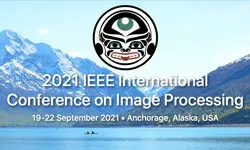Two-Stage Domain Adapted Training For Better Generalization In Real-World Image Restoration And Super-Resolution
Cansu Korkmaz, Ahmet Murat Tekalp, Zafer Dogan
-
Members: FreeSPS
IEEE Members: $11.00
Non-members: $15.00Length: 00:13:17
20 Sep 2021
It is well-known that in inverse problems, end-to-end trained networks overfit the degradation model seen in the training set, i.e., they do not generalize to other types of degradations well. Recently, an approach to first map images downsampled by unknown filters to bicubicly downsampled look-alike images was proposed to successfully super-resolve such images. In this paper, we show that any inverse problem can be formulated by first mapping the input degraded images to an intermediate domain, and then training a second network to form output images from these intermediate images. Furthermore, the best intermediate domain may vary according to the task. Our experimental results demonstrate that this two-stage domain-adapted training strategy does not only achieve better results on a given class of unknown degradations but can also generalize to other unseen classes of degradations better.



